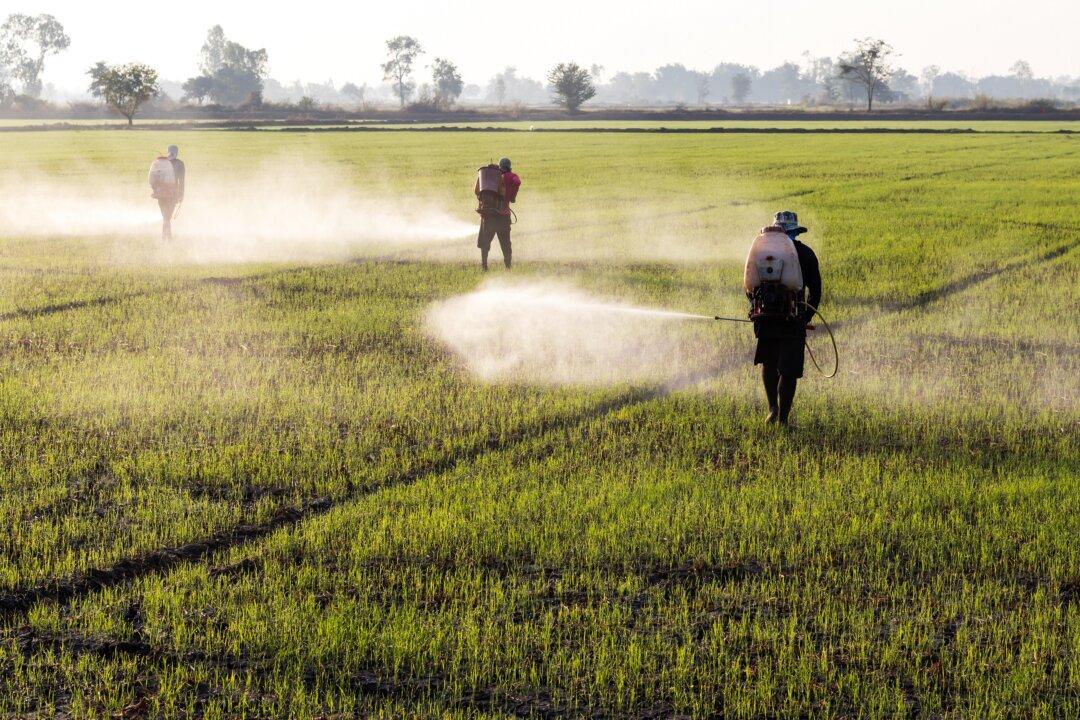The last time you ordered a leafy green salad, a whole grain entrée, and a dessert made with fresh fruit, did you enjoy the glyphosate, atrazine, and chlormequat that came along with it? You probably didn’t even realize that your meal was laced with some or all of these harmful chemicals, and you’re not alone. Americans are unknowingly ingesting these and other pesticides and herbicides every day with nearly everything they eat. Yet, your gut is acutely aware it’s a problem, and it’s begging you to stop. Stop the war going on inside your gut. Every time you ingest these toxic bombs, you’re furthering the degradation of gut health and actively promoting conditions such as leaky gut. Even if you believe you’re eating a healthy diet and following a health-promoting lifestyle, your gut is compromised more than you realize.
Hidden Threats in the American Food Supply
It’s becoming all too clear that contaminants in the food supply are pervasive. Thankfully, the media gets the news of these recalls out quickly so consumers are less likely to become ill. You can promote your health by avoiding these foods and/or following guidelines for safe food preparation due to pesticides. But what happens when the pesticides and herbicides have become part of the food? Washing fresh produce may remove some of the residues, but not nearly enough to render it “organic.” And don’t rely too heavily on the organic designation since pesticide drift is a common occurrence in the agricultural landscape, as can a false sense of security when the pesticide levels are “below allowable levels.”When it’s revealed that our favorite breakfast cereals contain residues of glyphosate (old news) and now chlormequat (a toxic pesticide), do you give up your morning oatmeal? Food choices are yours, for certain, but don’t bury your head in the sand. Learn more about how these toxic chemicals affect your health, advocate for their discontinued use, and actively protect your health. Your actions today will help prevent future problems for yourself and your family.
- Glyphosate is an herbicide whose use is almost ubiquitous on conventional farms and lawns and gardens across the United States. Its use as a weed killer may be controversial, but potential health effects are frightening: liver and kidney damage; reproductive and developmental issues; and dysbiosis (changes in metabolic activities) in the gut microbiome. The consumer advocacy group Environmental Working Group revealed in 2018 that many popular brands of oat-based cereals, oatmeal, and granola products contained more than the maximum recommended amount of glyphosate; even some of the organically grown oats contained detectable amounts.
- Atrazine is a commonly used herbicide that can act as an endocrine disruptor and cause hormonal imbalances. It can cause low testosterone; reduced male fertility; and increased risk of miscarriage, birth defects, and low birth weight. Again, the Environmental Working Group reported in 2015 that harmful levels of atrazine are present in the tap water supplying 7.6 million Americans.
- Chlormequat is a highly toxic pesticide that is commonly applied to oat and grain crops to alter plant growth. Although not currently approved for use on U.S. food crops, in 2018, the Environmental Protection Agency began permitting its use on imported oats. Health issues include reproductive system damage and fetal growth disruption. According to the Environmental Working Group, the amount of chlormequat detected in Americans’ urine is increasing. In 2017, 69 percent of a group (96 study participants) had detectable levels of chlormequat; by 2023, the percentage had risen to 90 percent of the group.



